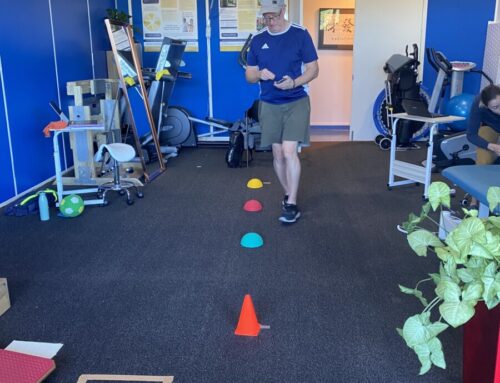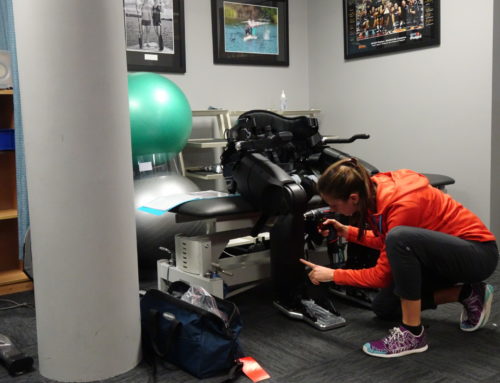80% of people living with MS struggle with fatigue as one of their main reported symptoms, which can hugely impact on not only their ability but also their confidence to exercise. Although we understand that exercise is vital for those with MS to help maintain strength, flexibility, function and mental well-being to mention just a few reasons. What we NOW know is that vigorous high intensity exercise 3-4 times a week can actually be neuro protective and has the ability to slow down the progression of MS.
Many people do not know that the main driver to create remyelination is exercise and dependent on use.
However, if you have not been exercising much or suffer with fatigue as well as other symptoms like increased sensory symptoms with exercise it can be very daunting to start exercise and often people start, do too much and feel awful and stop again. This is why it is so important to be lead through a steady progressive personalised program. By working in short bursts of high intensity, often starting at only 10-20 secs with at least the same amount of time rest and then over a period of 6 -8 weeks steadily increasing the work time. This is where a skilled neurological physiotherapist is needed as your presentation is individual and they will be able to direct you when it is good to push and when you need to rest.
If you can not access a face to face expert therapist, then online telerehabilitation can also provide you with the goals you want to achieve. Knowledge equals power and the more you know about your MS and how to self manage this the more control and improved quality of life you will have.
One of our recent clients completed the 6-week KICK START program and smashed all her outcome measures as detailed in the table below and read this inspiring clients story of her journey with MS so far.
However most importantly for her, it gave her the confidence and the power to take control of her MS and exercise.
“I was diagnosed with Relapsing-Remitting Multiple Sclerosis 12 months ago after chronical illness for 3 years. I was fortunate to be a case study for Gilly in March and was sufficiently impressed and interested in her methods to enrol for the 6 week Kick-Start Course. After the first session I thought she was crazy and that I physically could not possibly do what she requested of me. I thought I would suffer badly with fatigue and possible relapse. On the contrary, after six weeks I am walking normally without fear, walking & running up & down stairs without pain, climbing hills, undertaking a fairly rigorous gym program, have much less fatigue, my balance is better and, most importantly for me, I am not afraid to try doing things anymore. I spent the first 12 months after diagnosis having to remind myself that I can’t fight MS and I just have to put up with the symptoms. However, I now know that whilst I am not going to win the war against MS, I can win some battles or at least find a manageable & more liveable truce . Thank you Gilly for giving me back control of my life.”
| Measure | Pre score | Post score | Comments |
|---|---|---|---|
| 1 leg standing with eyes close | Right: 4 sec Left: 3 sec | Right: 30 sec Left: 12 sec | quadrupled score |
| Hopping | Right: 22 Left: 10 | Right: 41 Left: 32 | At least doubled score |
| 12 item MS walking scale | 37/60 | 23/60 | 14 point improvement |
| Actives Balance Confidence Scale | 63% | 79.25% | 16.25% improvement |
| Fatigue Severity Scale | 59/63 | 38/63 | 18 point improvement |
| Functional Assessment in MS | 124/232 | 106/232 | 18 point improvement |
| Goal Attainment Scale | -1 | +2 | Improvement in all goals were significant |
| Canadian Occupational Performance Measure | 47 | 69 | Significant improvement |



